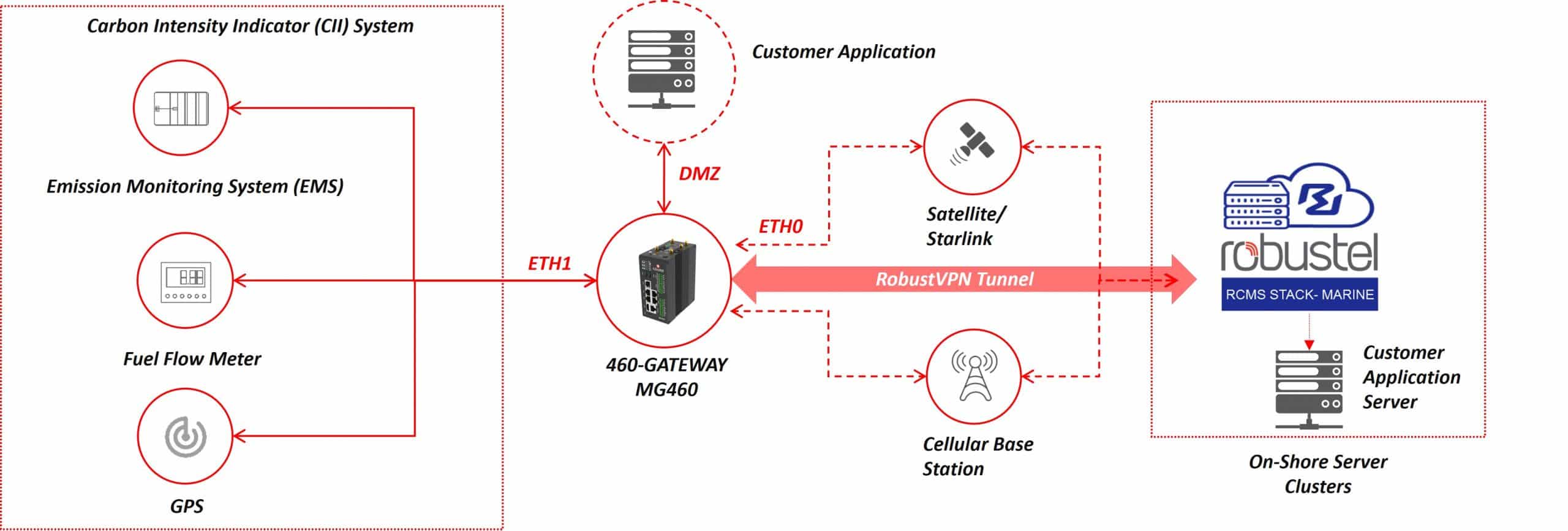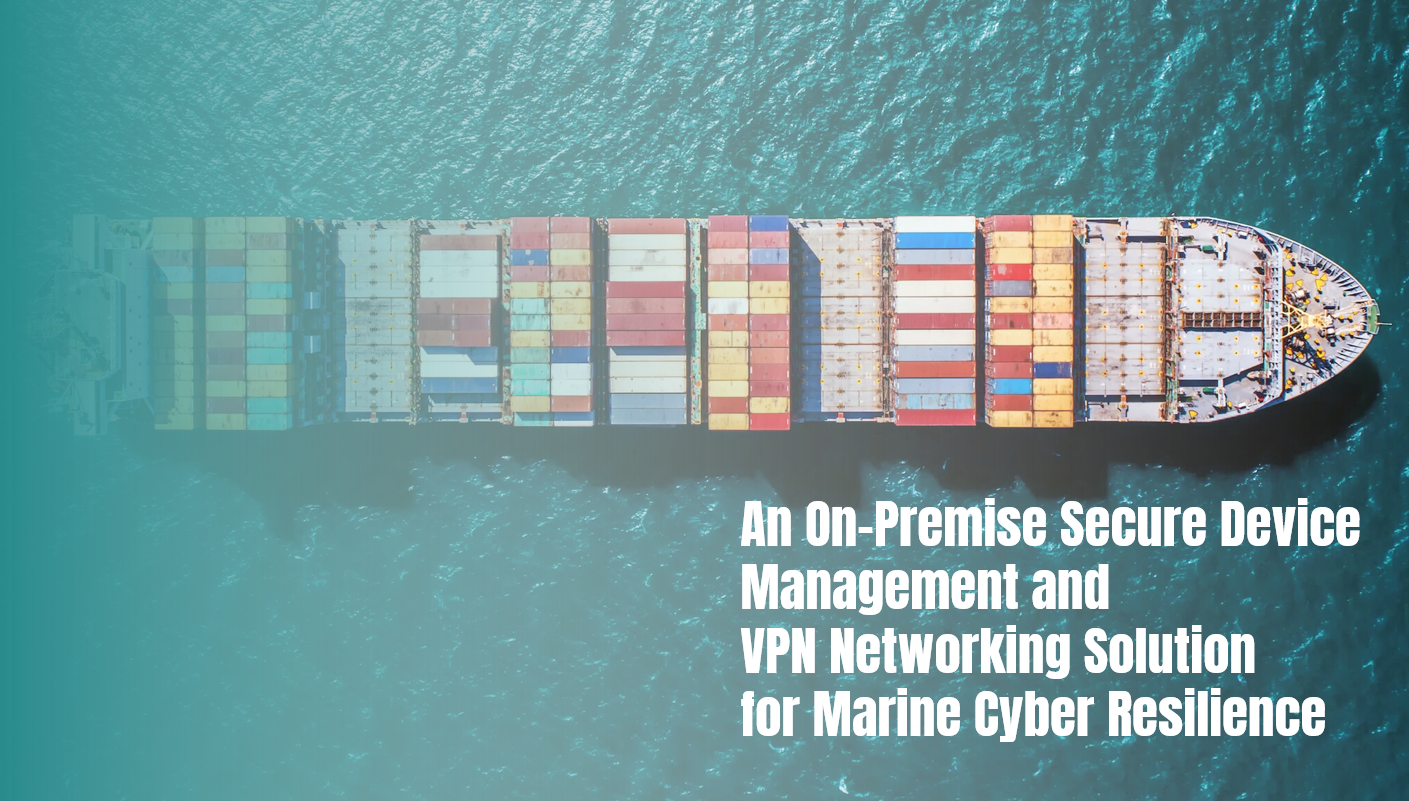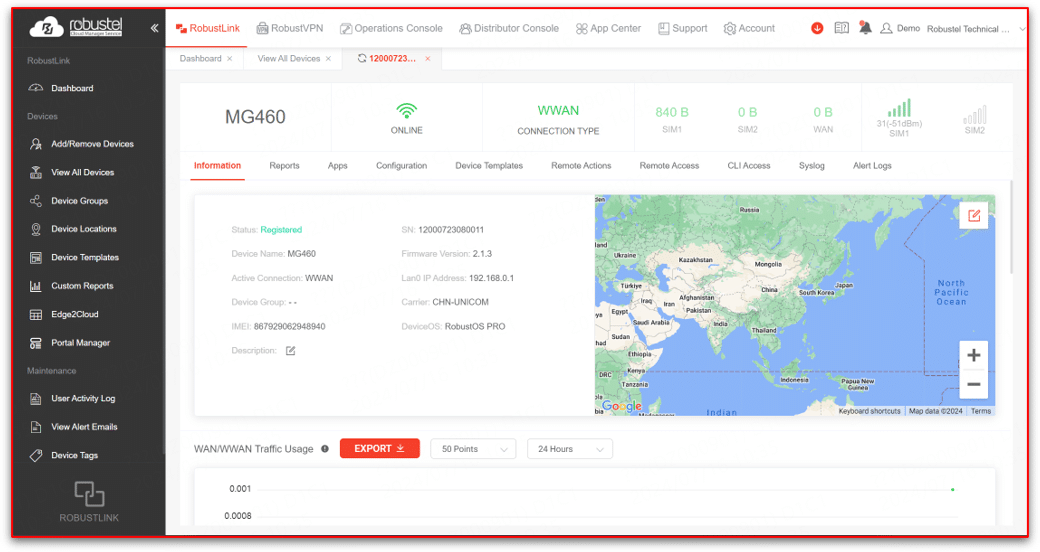Background:
The maritime industry is undergoing a significant shift as it adopts stricter environmental regulations, particularly around maritime fuel oil data collection and Carbon Intensity Indicator (CII) reporting. Under the IMO’s Data Collection System (DCS), vessels are now required to annually submit fuel consumption data (DCS) and CO₂ emissions performance (CII) to authorized verifiers.
Effective from 2024, these regulations mandate that ship operators track and report metrics like fuel consumption and energy efficiency — measured as grams of CO₂ emitted per cargo-carrying capacity per nautical mile. Compliance with IMO DCS and CII not only supports sustainability goals but also ensures ongoing regulatory eligibility for commercial fleets.
The Challenge
Maritime operators today face the dual pressure of environmental compliance and cybersecurity enforcement. In this case, the customer needed to address several critical challenges across their fleet:
1. Navigating Complex Regulations
The customer was required to comply with both the IMO’s Data Collection System (DCS) for fuel oil consumption, the CII rating system, and the maritime cybersecurity standards set out in IACS UR E26 and E27. Coordinating these frameworks across multiple vessels created a significant regulatory burden.
2. Ensuring Data Integrity and Security
Accurate and secure maritime fuel oil data collection was essential. The customer needed to guarantee the validity of fuel and emissions data transmitted from vessel to shore, without risk of tampering or loss — a key requirement under both CII and IACS UR E27.
3. Inconsistent Data Collection Across the Fleet
Fuel oil consumption and CO₂ emissions data were being gathered inconsistently across various shipboard systems, with no centralized process for aggregation, normalization, or secure transfer. This lack of standardization made annual IMO DCS reporting difficult and audit-prone.
The Solution
To meet its regulatory and operational challenges, the customer deployed Robustel’s MG460 industrial gateway, integrated with the secure RCMS Stack Marine platform. This combined solution enabled end-to-end maritime fuel oil data collection, transmission, and compliance with international cybersecurity and environmental standards.
1. Secure Data Handling
The MG460 gateway encrypts and securely transmits fuel oil consumption data, including CII metrics, to designated regulatory bodies and internal shore-based servers. This process is fully compliant with IACS UR E26/E27 cybersecurity standards, ensuring that sensitive environmental data remains protected throughout the data lifecycle.
2. Adaptable and Scalable Integration
Thanks to its modular architecture and broad interface support (e.g., RS485, Ethernet, digital I/O), the MG460 easily integrates into diverse onboard systems. This flexibility ensures compatibility with current shipboard configurations while providing scalability for future environmental monitoring or digitalisation initiatives.
3. Remote Compliance Monitoring and Automated Data Collection
By leveraging the RCMS Stack Marine platform, the customer gained centralized visibility over equipment across the fleet. Robustel worked closely with the customer to implement communication protocols enabling the MG460 to interface with onboard sensors, automatically collecting fuel oil consumption data required by IMO DCS and performing critical calculations for the vessel’s CII rating.
Solution Architecture

Solution Components
MG460 Maritime Cyber Security Gateway
As the world's first product to receive IEC61162-460 (Ed. 3) type approval from DNV as well as 460-Gateway and 460-Wiresless Gateway, the MG460 not only meets the highest cybersecurity standards for maritime navigation and wireless communication systems but also complies with IEC60945, meeting SOLAS vessel standards.
Device & Network Management Platform
Through RCMS Stack Marine, users can monitor the operational status and network connectivity of devices in real time, enabling timely problem identification and resolution. Furthermore, it provides VPN network services that comply with IEC61162-460 standards (direct communication mode), ensuring the security and integrity of data transmission.
Solution Benefits

Operational Efficiency and Cost Savings
Reduces the need for manual data handling and increases the accuracy of compliance reporting, lowering operational costs and enhancing effectiveness of decision-making processes.

Regulatory Compliance
Meets stringent global standards for CII, fuel oil data collection and cybersecurity, helping the customer avoid penalties and operational disruptions.

Improved Data Security and Integrity
Provides a fortified cybersecurity environment that ensures the authenticity and accuracy of operational data in accordance with the IACS UR E26 & E27 regulations.
Want to speak to one of our IoT experts to find out how Robustel can help you build your solution?


.png)
